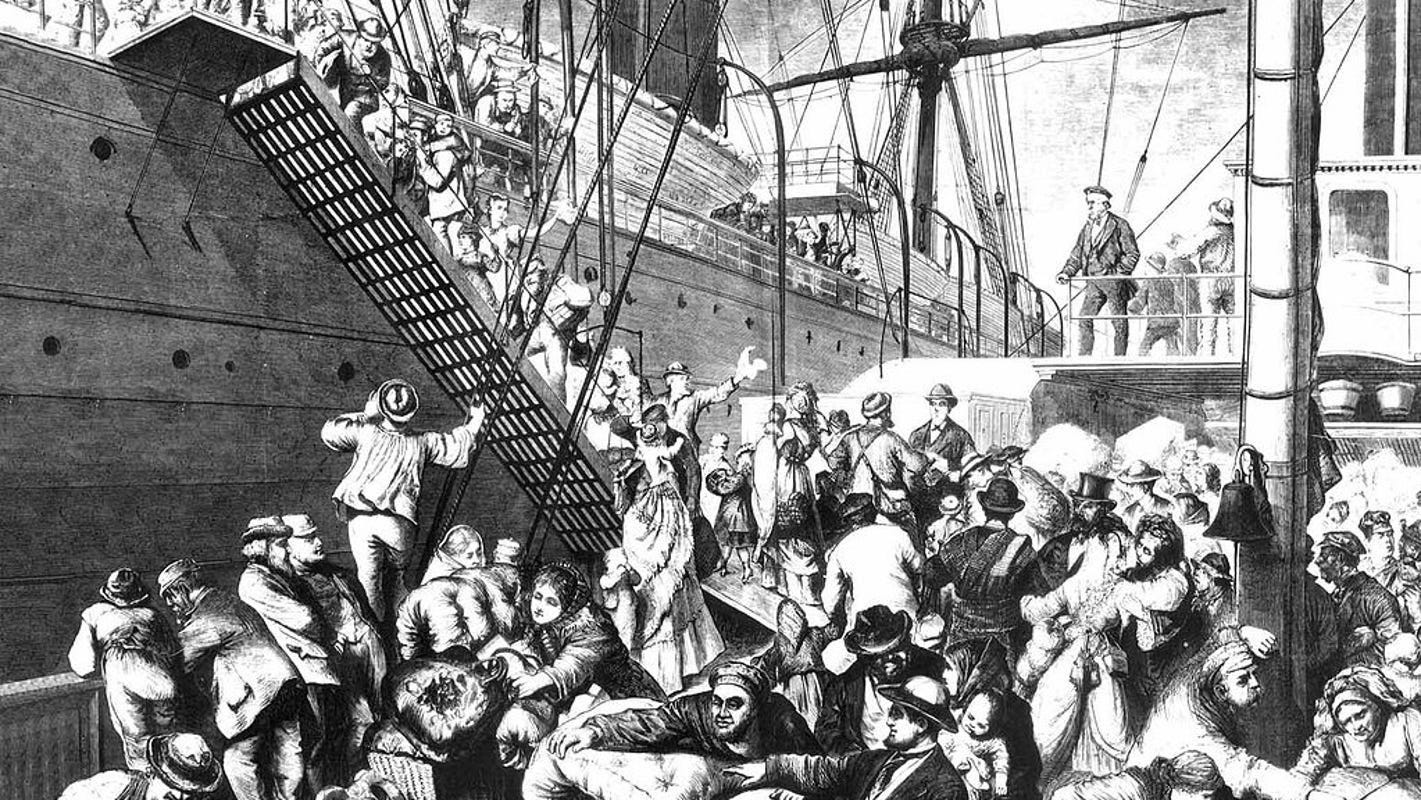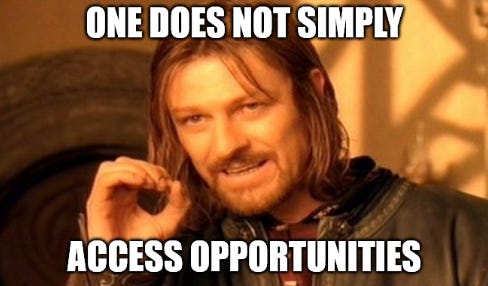🤑 A Web of Opportunity
Intro
If you lived before the internet, you might remember a time when opportunities were location dependent. A time when the US was dubbed the land of opportunity and many were flocking there in search of a better economic situation, one that gave them more opportunities to prosper.
Access to opportunities, historically
Up until the 20th century & the introduction of the steam engine, it used to take from 6 up to 14 weeks to cross the Atlantic. By 1907, this was slashed down to 4.5 days, and yet further slashed by the introduction of commercial transatlantic flights.
Instead of days, crossing the Atlantic would now take you less than 10 hours, but the one-way ticket would set you back ~3k$ in today’s money. Since then, the most improvement was in terms of prices, but the main issue remained…
You know, the whole inconvenience of having to leave your family, or completely disrupt their lives to relocate and build new lives...
It seems like we had remote work for a long time now, but it wasn’t really a thing just a decade or two ago. While some companies probably were allowing some of their workers to work remotely some days, it was far from the norm. Sites like LinkedIn, Twitter or UpWork were just getting started during the first Internet boom.
During the first internet boom, you still pretty much had to relocate to the US to be able to:
- Work for most companies building on the internet
- Invest in companies building on the internet
So, here’s our thesis:
The most important thing that the (trust minimizing technology is known as the) blockchain (and applications built on top of it) will decentralize, is the access to opportunities.
This is bigger than the opportunity to work for someone or run a one-person-shop; Web2 platforms already gave us that. This is the opportunity to invest.
- To invest your time in a project, and earn a stake.
- To invest your money in its token, traded globally.
Ethereum gave us a taste of what was possible:
- If you worked on Ethereum, you earned Ether.
- In the Ethereum crowd-sale, it didn’t matter where you’re from. What mattered is that you had the means and the desire to contribute.
Why now?
There are multiple reasons this wasn’t really being done before.
Before the blockchain, tokenizing a project required tremendous amounts of trust in the project administrator (and their residence country) as it would leave them in full control over all tokens and their minting. Want to use it for voting? Build a system you need to trust. You want your token to be tradeable? Build your own exchange. A lot of work; more importantly, still requires infinite amounts of trust.
These things are increasingly possible now. Thanks to the DAO frameworks like Aragon, DAOstack, or Moloch, you already can manage funds & vote on the direction of fully digital organizations without needing to trust people. Currently, they aren’t good for much more than that, but will soon have a full suite of tools allowing anyone anywhere to easily start & manage organizations with strangers over the internet. How cool is that?
Conclusion
Web3 is the Web of Opportunity. The web of breaking down barriers & allowing people to decentrally coordinate around the creation of socioeconomically useful things at a scale we haven’t seen before. A Web in which users aren’t just exploited for their attention, but recognized and rewarded as co-owners of the platforms they use & contribute to.
At MetaFam, we’re working hard to make this future a reality as soon as possible. We don’t care where you’re from or what school you went to. What matters is that you’re aligned with our purpose and willing to help. For that, you’ll be able to become one of the founders & earn yourself a piece of the pie.


